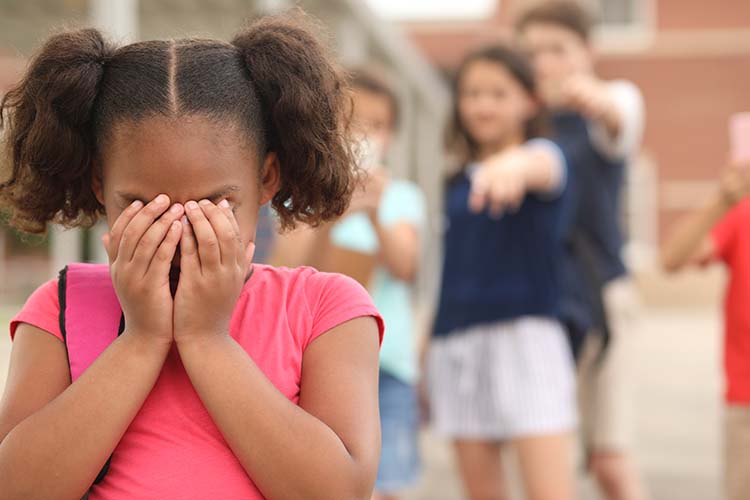October is National Bullying Prevention Month
Every October, schools and organizations across the country focus on bullying prevention for National Bullying Prevention Month. The National Center for Education Statistics finds that more than one out of every five students report being bullied.
In addition, cyber bullying increased during the pandemic as children used digital platforms increasingly for education and socialization. According to L1GT, an organization that tracks online harassment, cyberbullying increased 70% in just a few months. Also, after complaints of harassment, popular digital platform TikTok rolled out policies in March 2021 against harassment and bullying.
Bullying Prevention by Teaching Empathy
Addressing the root of bullying and other maladaptive problems is a core value of Charity for Change. Bullying is a symptom. The problem is children’s lack of foundational skills to develop empathy and compassion.
As a result, our priority is helping children achieve their highest potential by giving them a strong foundation of social-emotional learning (SEL) skills. These skills include understanding and managing their emotions, achieving positive goals, feeling empathy, building positive relationships and making responsible decisions.
Sheila Galera, program director for 21st Century Learning Centers for the School District of Palm Beach County, is including Charity for Change programs for the fourth year. She values the program’s prevention-based approach to violence and bullying that addresses behavior and character proactively.
Accordingly, instead of reacting to bullies and negative behavior, the Charity for Change program encourages children to deal with emotions and interact appropriately. As a result, this leads to the prevention of bad behaviors, anti-social traits and mental health problems.
The Importance of Character in Bullying Prevention
Our program’s cooperative learning curriculum teaches children to work together while solving problems and practicing 10 character traits. These traits include respect, cooperation and tolerance.
Everything in the curriculum is about character, giving and ways to help others. Children experience the confidence and self-efficacy that comes with making something positive happen for someone else.
Teaching children to do things for other people leads to empathy. Being empathetic to the conditions of others is key to bullying prevention.
Character traits are taught by direct instruction, modeling and real-world conversations about topics that impact children’s lives and behavior. Not only do students engage in discussion about the traits, but they also write about the topics, their feelings and their emotions.
Success of Charity for Change Programs
Charity for Change offers a program that works. For example, Guadalupe Center in Immokalee offers the program to students in its After-school Tutoring & Summer Enrichment Program. Pre- and post-tests during the 2018-19 school year showed a 40% increase in character trait knowledge.
Since 2008, Charity for Change has reached 80,000 children with its educational SEL program.
The Charity for Change vision is to cultivate empathetic children who become successful learners, contribute to their schools and communities, and participate in society as ethical, responsible, resilient and self-reliant citizens.
Children who are engaged with each other and their community learn to care about each other and the world around them. By connecting our children, we are planting seeds of humanity and addressing the root of bullying and violence.
Contact us for information on how to get Charity for Change into your school or afterschool program.





